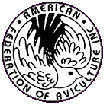Help, my parrot is screaming!
Excessive vocalization is one of the most common complaints parrot guardians have. Unfortunately for our ears (and our neighbors!), even happy, healthy parrots can be very loud. Screaming seems to be self-reinforcing for many pet parrots – it seems to feel good, or be fun. Wondering whether the level of bird noise in your household is normal or not, and how to modify it? Here is a quick, but by no means comprehensive, outline:
Normal parrot vocalizations are to be expected. Here’s what they usually look like:
- Commonly heard around dawn and dusk, or at a certain time of day (like exciting times such as meal times, or when you come home) for usually no more than about 20 minutes or so.
- Contact calls are loud, repetitive calls with a pause in between, as though the bird is listening for a response. They’re naturally used by parrots to locate flock members who may be miles away. It’s generally advisable to call or whistle back to your parrot to reassure him that you’re OK.
- Screaming can be a common response to fearful stimuli; an alarm call generally sounds very different from other calls. Remove what is scaring the bird or contact us to get help with desensitization and counter conditioning to help your bird feel better about what’s scaring her.
- Vocalizations commonly escalate when the ambient noise in the room escalates; birdie see, birdie do! Turn down the television or whisper when you’re talking, and the bird may become quieter, too.
Abnormal screaming (these require behavioral intervention ASAP):
- Boredom screaming can be repetitive, mindless, unending calls over a long period of time – this type of behavior is called a stereotypy, and is similar to dogs barking mindlessly in the backyard all day or tigers at the zoo pacing back and forth along the same track all day. It’s a sign of a very stressed animal and needs to be addressed with more enrichment and exercise.
- Fear and separation anxiety: screams can be desperate-sounding, perhaps prompted by you leaving the room (more severe than a contact call). This can be addressed by training, in which we teach your bird it’s okay to be alone briefly.
- Attention seeking screaming often accompanied by body language that reveals this screaming for what it is. Often accidentally reinforced by the humans, by telling the bird to shut up! This can be addressed by training, as well.
To help the overall “normal noise” level of a healthy, well adjusted parrot go down:
- Make sure your bird is healthy and is having its needs met by visiting your avian veterinarian. Ill birds or those who need something (ex. A better diet, more stimulation, different care practices) may exhibit more excessive vocalization. There’s no point in trying to correct a medical or husbandry problem with behavioral intervention.
- Reward/reinforce, with a tiny treat, toy, or attention, good vocalizations (which in this case is anything and everything that doesn’t hurt your ears) – these should increase over days or weeks, gradually taking the place of unwanted vocalizations. Try whistling or singing to your bird, in the hopes that they’ll whistle or sing back, which you can then reinforce.
- Do NOT punish your bird for screaming. This can make screaming worse – especially if it is anxiety-based – not to mention break the trust your little prey-animal friend has in you.
- Increase enrichment activities: foraging for hidden food and special toys, “field trips” outside in a harness or carrier, interactive play, destructible toys, showers or baths, physical exercise on a playgym, etc.
- Start some trick training: even teaching silly tricks gives your bird something to focus on that has nothing to do with screaming, tires her out, reinforces your parrot for appropriate behavior, and teaches appropriate attention-seeking methods. It also provides enrichment. Besides, who wants to tick off the person with the treats?
- Make sure your bird is getting a good 12 hours of dark, quiet, uninterrupted sleep per night. Many species live near the equator, where this is naturally what they would get. Inadequate sleep is a very good way to create an irritable, frustrated, immune-compromised bird.
- Seek professional assistance! There is no shame in asking for help. Contact us to get started!







